
Top #10 things to keep in mind to avoid falling prey to tax scams
Top #10 things to keep in mind to avoid falling prey to tax scams
Tax scams are common happening throughout the year. However, with distressful times caused all around by the novel coronavirus tax scammers are finding this as an ideal time for catching up new prey. Usually, it is seen that young Americans are most likely to fall prey to the tax fraudsters and scammers.
The IRS has been continuously creating awareness amongst the Americans against the increased tax scams, frauds, and cons. The IRS has informed the common people about the various in which tax scams can occur may it be in the form of abusive tax schemes, telephone scams, or even in the form of phishing schemes. The IRS urges the Americans to be alert and prevent being a victim to any scams or any such schemes which might be offering instant money or exemption from filing tax returns or paying taxes as the citizen of the United States. Any such schemes or offers can land up common people into big troubles like prosecution and imprisonment as well.
Let us have look at the most important things which need to be kept in mind by the Americans to avoid falling prey to tax scams.
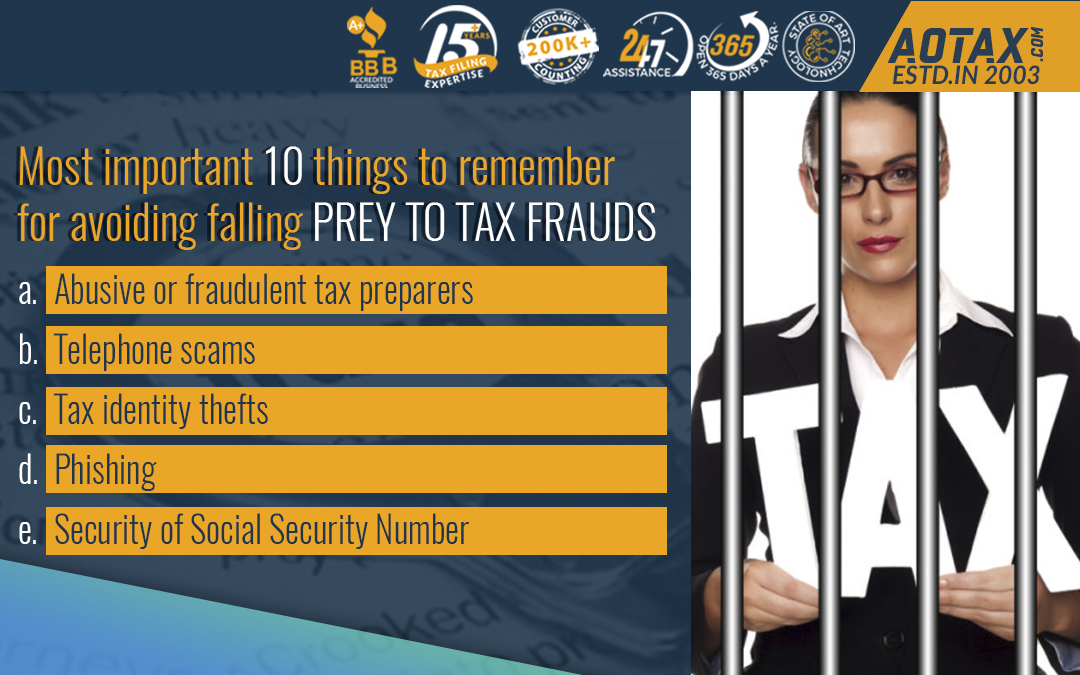
a.Abusive or fraudulent tax preparers
The majority of the tax preparers are quite honest and do the tax preparation legitimately, but some can be fraudulent. Fraudulent tax preparers can file returns by the use of false information to boost the refund. Some taxpayers might even attempt to steal personal information that is present in your tax documents. Taxpayers must be very careful while selecting their tax preparers and must remember that the ultimate responsibility for information used in a tax return is theirs.
b.Telephone scams
This can happen when criminals pose to be IRS agents and call the taxpayers to threaten for paying overdue tax bills. These imposters use fake names and phony IRS identification badge numbers. Taxpayers should always remember that the IRS would never adopt threatening as a strategy to deal with common people. Moreover, the IRS would also never call up taxpayers for immediate payment using a debit card or any other medium. It would usually send you mail in case of any payment due or any other issues.
c.Tax identity thefts
Tax identity thefts occur when a tax fraudster tend to use taxpayer’s information and obtain income tax returns from the IRS. This might occur even before income tax returns have been filed by the taxpayers. Fraudsters can steal taxpayer’s Social Security number and file returns early in the season. Usually, fraudsters try to use this strategy for deceased persons to obtain the benefits.
d.Phishing
Phishing occurs by unsolicited emails or websites posing as legitimate sites that can lure the victims to share their personal and financial information. The intent of the fraudsters here is not to use the taxpayer’s information only for tax-related scams but also to store the information for use in other frauds in the future.
e.Security of Social Security Number
A taxpayer can lose his Social Security number easily and the entire fraud procedure begins when the Social Security Number is available. Taxpayers should avoid carrying Social Security Number outside and must also ensure that their smartphones are locked to avoid Social Security Number theft.
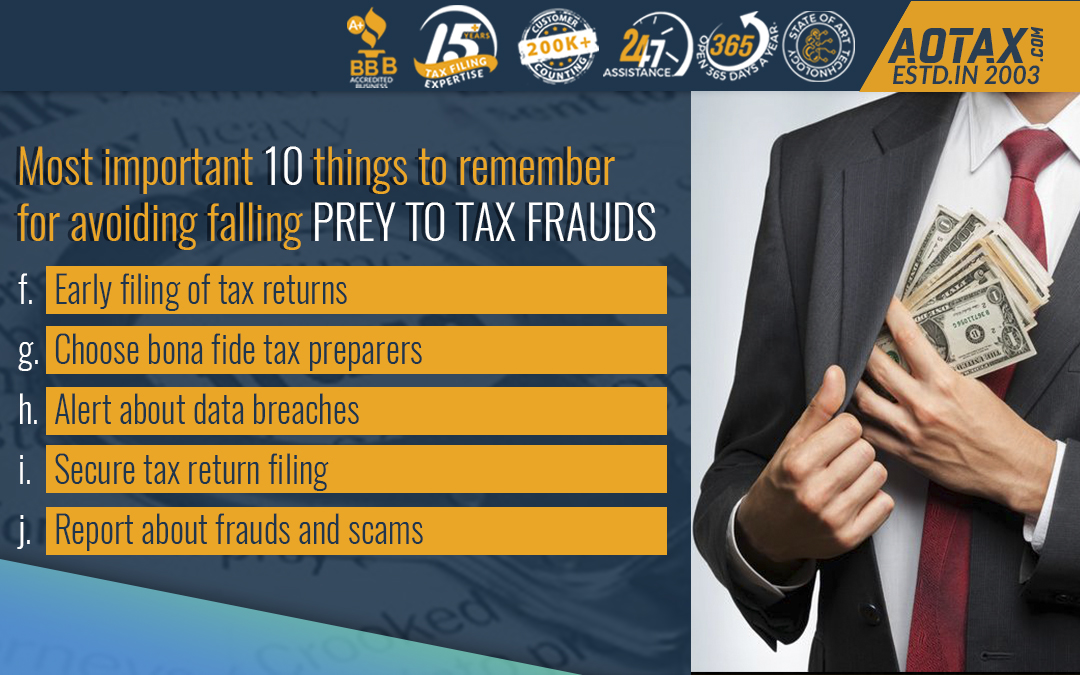
f.Early filing of tax returns
The taxpayers should file their tax returns at the earliest so that they can beat the criminals. Usually, fraudsters aim at filing the tax returns by using the stolen information at the earliest and even obtain the returns before the IRS is aware of it. However, taxpayers can rule out this possibility by filing their tax returns as soon as possible.
g.Choose bona fide tax preparers
Taxpayers must always opt to work with a reputed company and trustworthy tax preparers. Qualified tax preparers would have Tax Preparer Identification Number and taxpayers can check on this from the IRS website. Moreover, taxpayers can check the reviews of the tax preparation companies before deciding to work with them.
h.Alert about data breaches
Data breaches help the fraudsters in obtaining the information which is needed to execute the tax identity thefts. Sometimes, tax scammers might be having very little information and they can use phishing emails to gain further information. It is very necessary for taxpayers to be aware of data breaches and secure their information in case of any breach.
i.Secure tax return filing
If taxpayers are filing tax returns using Wi-Fi, they must do it by the use of the secure connection. The filing of tax returns by using public Wi-Fi should be avoided by taxpayers. Moreover, if taxpayers are filing their tax returns by using mail they must do it directly from the post office.
j.Report about frauds and scams
Taxpayers are encouraged to report any fraudulent practice, impersonation scam, phishing scam, etc. to the IRS by using the various tools of the IRS such as IRS Impersonation Scam Reporting, FTC complaint assistant or by sending mail to phishing@irs.gov.
Conclusion
Hence, taxpayers must be very alert about the different types of tax scams that are happening very frequently and must report to the IRS about such scams.

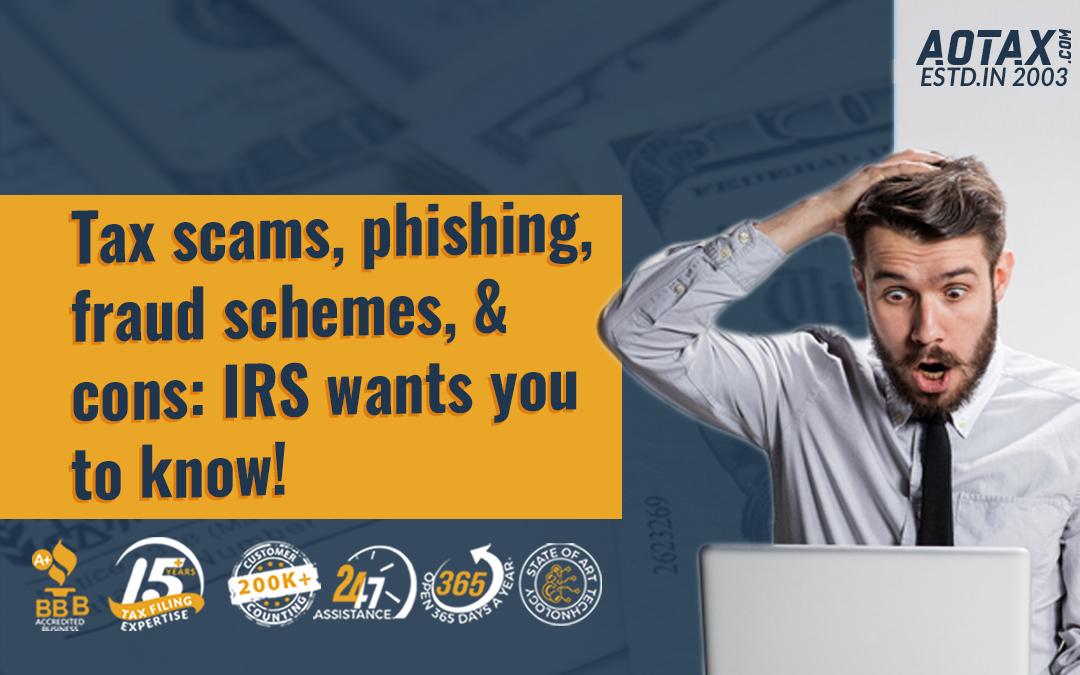
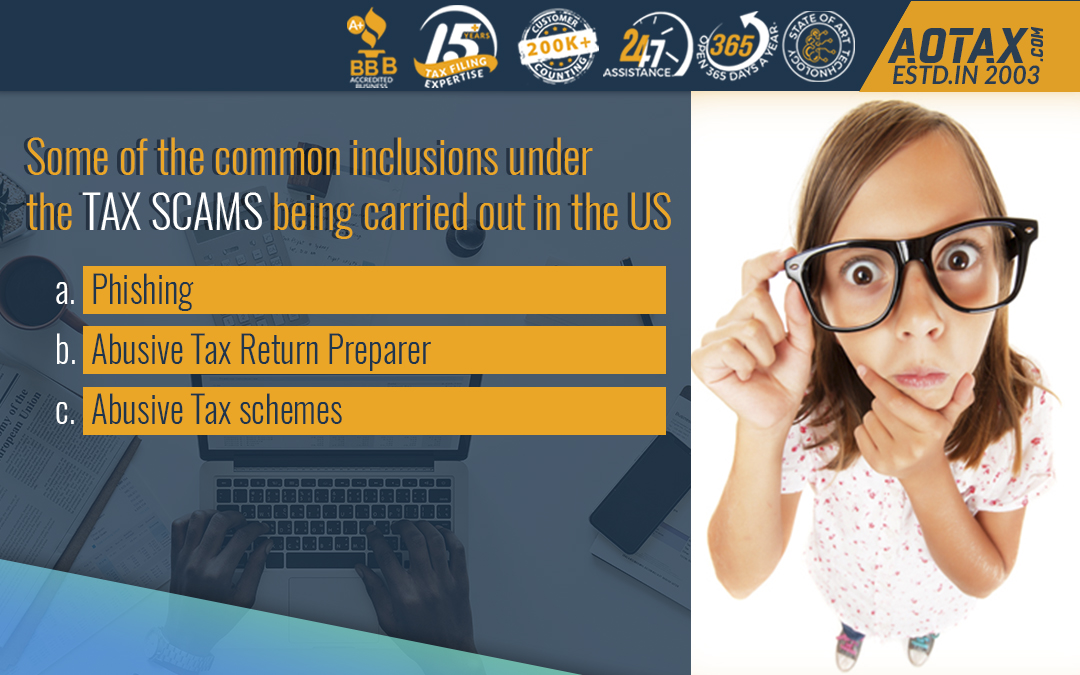
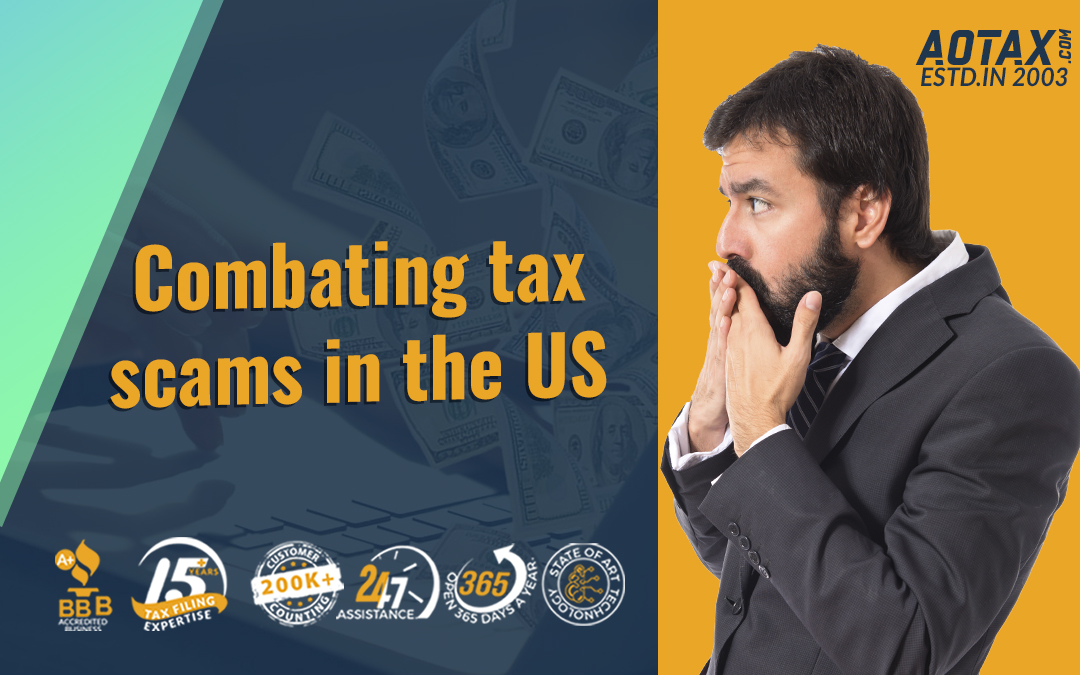
Recent Comments